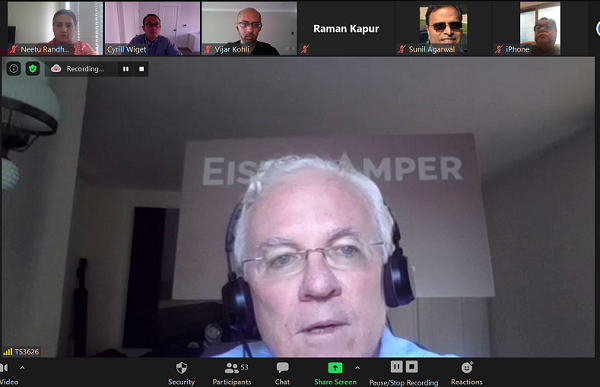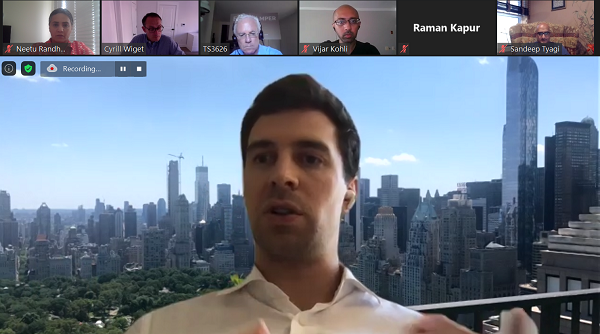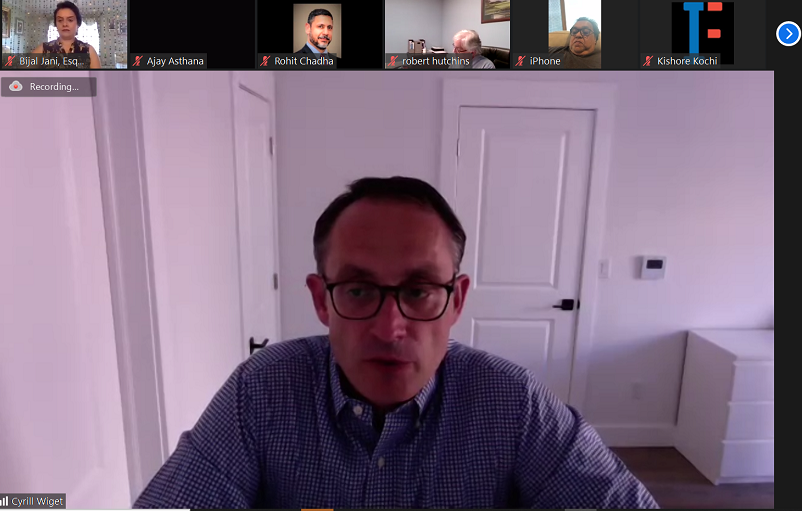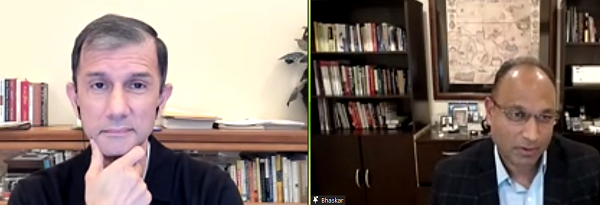Looking for an Alternative Source of Startup Financing? Check Out Family Offices
If you are looking for an alternative way to finance your startup, check out family offices, panelists at a recent TiE New Jersey meeting said.
The meeting was moderated by Vijar Kohli, cofounder and group CEO of Golden Door Asset Management (Newark), who said that he had been involved in the family office industry. He noted that, unlike in the past, family offices are now “becoming a much more active place to raise capital, to receive direct investments.”
There are two types of family offices: those that represent a single wealthy family and those that represent several families that are managing their money together, according to panelist Cyrill Wiget. He has spent 25 years establishing key relationships with ultra-high-net-worth clients and family offices in Europe, Latin America and the United States. Wiget noted that family offices used to be more prevalent in the rest of the word, but in the last 10 years they have become easier to find in the United States.
Focusing on single-family offices, Wiget said that these entities can represent complex family structures, and the majority manage money made and invested by entrepreneurs. Most of the management of family office investments is given to a management team that the families hire, but the families often set their own objectives, and may be interested in investments in their areas of expertise. “When it comes to bigger investments, usually their managers have to talk to them to get their decision.” Family offices tend to have funds of at least $150 million to invest, he said.
Stringent Requirements
Family offices tend to invest in finance, insurance, manufacturing and real estate, but the offices managing the money of tech entrepreneurs will want to get into tech deals. These investors have even more stringent requirements for startups and their founders than do VCs when investigating potential investments and doing due diligence.
“You probably won’t approach a family office for the seed round for $50,000or $100,000,” he noted. “Usually you ask them for at least $500,000.” Also, family offices tend to stick with investors, and continue their support into follow-up funding rounds.
He added that startups that have lone founders are at a disadvantage. “The other thing I’ve seen often in corporate governance is if you’re a one-man show, people could challenge you about what happens if something happens to you. So have a plan, have a management team in place.”

Timothy Speiss, co-leader of the Personal Wealth Advisors Group at EisnerAmper (New York), said that many family offices EisnerAmper works with are in the private equity space or focus on real estate or sports, to acquire sports franchises. He added that some family offices are in industry, such as manufacturing. EisnerAmper provides outsourced services to family offices, such as internal audits, tax compliance and investment advisory for portfolios. “We focus on optimizing the operations of family offices,” he said.
“Presently, we’ve made significant investments in all kinds of financial reporting encryption technology protocols that we make available to our clients, that they’re able to access on a licensed, very secure platform. We have a partnership with IBM Watson projects. We’ve actually had Watson program designs done for us.” EisnerAmper has also used Watson for some of its family office clients, “where we are able to assist them to design technology platforms that can make their work in their businesses go more quickly, more securely. … It really saves a lot of time.”
Impact Investing Focus
Eric Kohlmann, founding partner and CIO/COO of Trinnacle Capital Management, a New York-based hedge fund, said that he had started making angel investments with his own family’s fund, and then began working with other family offices. He also ran a company that specialized in building machine learning-based models to track human behavior and make stock predictions based on that; the company was sold to a hedge fund.

Family office investments have changed recently, he said. “Even in my couple of years of observing the space. I’ve seen a change in terms of how family offices organize themselves and in how the conversation has changed around generational questions, around questions on investment focus. Impact investing is becoming a very strong focus, largely driven by the new generation.”
Kohlmann added that family offices are a bit like people. Some are analytical and others are artistic and messy and want to fall in love with their investments. “It’s impossible to structure a pitch that will work for all family offices,” he said.
“You have to get into their background, what kind of flavor of family office are they, and that generally starts with the background of the principal of the family. Do they have a background of operating a family business in a particular industry, because that will tell you where they come from and what their mindset is.”
He agreed that finding a family that is interested in your sector helps. “Let’s say it’s a family that makes money by selling its pharmaceutical business,” then that will be the industry the family office understands really well and they will feel the most comfortable making investments in that particular sector, he said.
Kohlmann brought up the idea that it’s not easy to find family offices that might fund startups. There is no directory of family offices where you can look them up. One way to get in touch with them is to look for the conferences that they might attend, and find them there. Also, professionals who work with family offices, such as lawyers and accountants, should have some contacts with individuals running family offices.




